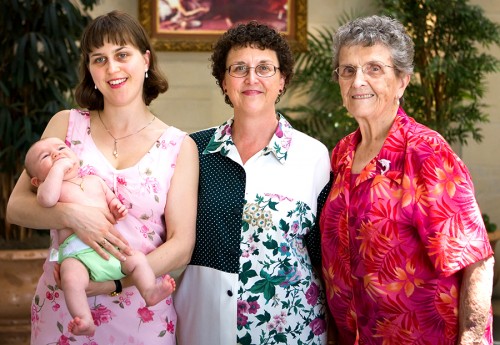Grandparent Caregivers – Unaware of New Childcare Guidelines?
Most of the time one of the best things new parents can do for at least their first child, even if they don’t know it, is to live near grandparents. I don’t mean in the same continent “near”, I mean close enough to babysit “near”.
I’ll tell you in a minute about a mother I feel sorry for who used her way-too-narrow, inexperienced perspective and decided to trade her baby’s safety for… well it’s still unclear why she did it.
I’ve written before about entering a generation where the grandparents haven’t seen measles and what a tremendous detriment that is to the current cadre of parents trying to raise children in an ever-increasingly difficult and dangerous world.
Morphing Into A Parent
Many young parents are guilty of at least thinking, if not outright saying it aloud, “I’m going to raise my child better than my parents did me.” Perhaps something they would never say in front of their parents; but, it may surprise them to learn, their parents would probably answer “yes, I hope you can.” (even if they were thinking: “and I hope you get a kid just like you.”)
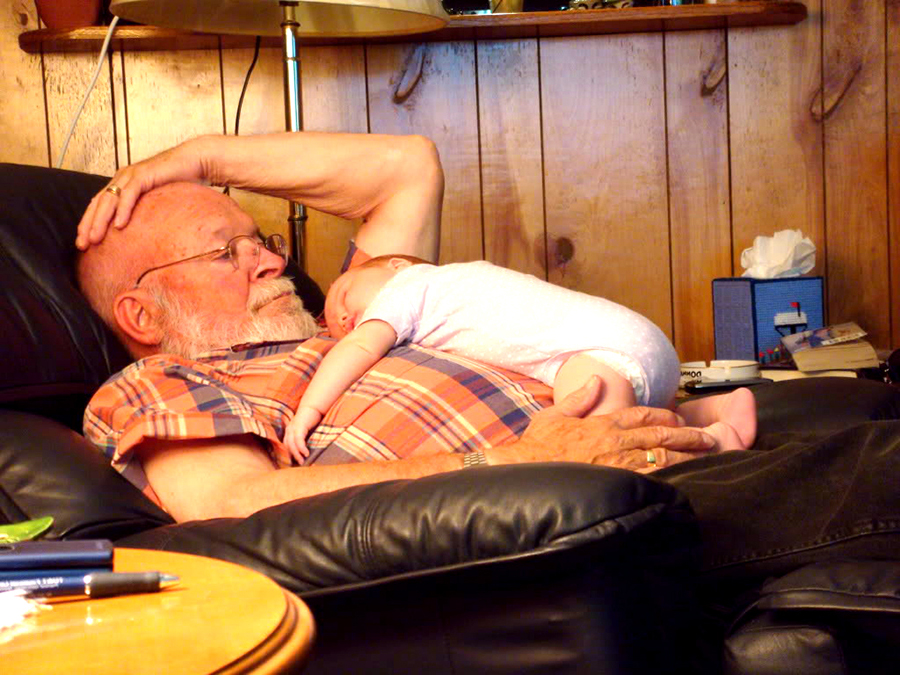 Over time, all the difficult parenting choices make most parents realize they are “morphing into my mother (or father).” That’s honestly to be expected, so much so that if it doesn’t happen… well, that’s the UNUSUAL scenario. Why? Well it’s because your parents never felt under any obligation to explain to you, as a child, all the “adult level” concepts that went into their decisions.
Over time, all the difficult parenting choices make most parents realize they are “morphing into my mother (or father).” That’s honestly to be expected, so much so that if it doesn’t happen… well, that’s the UNUSUAL scenario. Why? Well it’s because your parents never felt under any obligation to explain to you, as a child, all the “adult level” concepts that went into their decisions.
And, now that you are making them too, it finally dawns on you the struggle that is: “being a parent” – especially of someone like you – or at least your spouse. And, you can have empathy for the absolute frustration that vomits “because I’m the mommy that’s why!” out of your mouth before your brain even sends the command.
One of the very first things every new parent learns is just how critically important and satisfying to the soul it is to find someone who can watch the baby for awhile, who you can truly trust to “care.” That has “grandma” and “grandpa” written all over it.
Rules Change
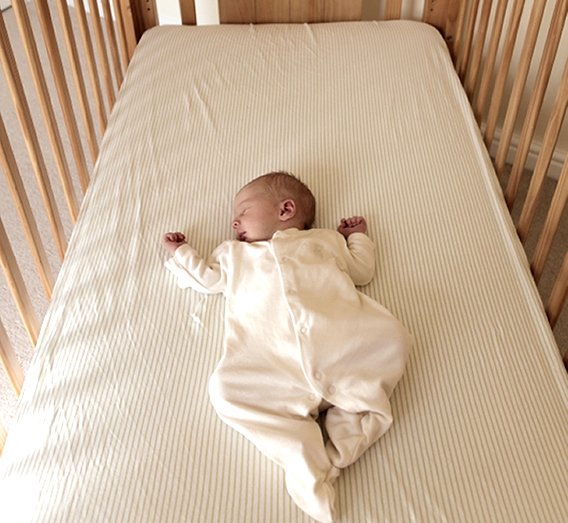 There is only one small snag in this picture, even if it is a small one that can easily be overcome, and that is: when they were learning their parenting skills they were listing to people like me – ah, as I was back then!
There is only one small snag in this picture, even if it is a small one that can easily be overcome, and that is: when they were learning their parenting skills they were listing to people like me – ah, as I was back then!
I remember advising hundreds of parents to “remember to put him/her down to sleep on his stomach so he doesn’t choke if he wet burps.” Maybe even a thousand, because I did write a pamphlet that was widely distributed. And, what’s absolutely incredible (to me) is that I remember saying those exact words on a Tuesday and doing such a gravity-defying, nerve-wrenching U-turn on Wednesday that it nearly made my nurses head-explode.
“Remember to put him/her down to sleep on his back to reduce the risk of SIDS!”
Grandparents Caregivers
That’s the topic of this article. If grams and gramps weren’t in the active market to hear part two of the story, they might not know the whole profession has new safety data that has changed child-care so much.
A pediatrician in Alabama, Amanda Soong, wondered about it enough to do a study that she reported on at the last (2012) American Academy of Pediatrics (AAP) national conference.
Grandparents as caregivers have been increasing steadily since the 1990s. In fact 12.5% since 2002 so that now over 2.7 million American grandparents are caregivers of their grandchildren.
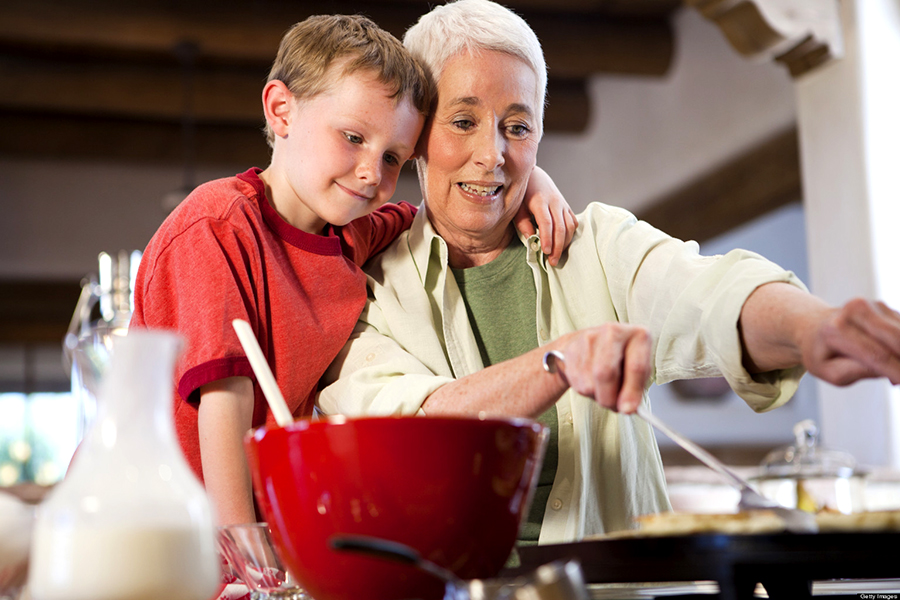 Dr. Soong’s study wasn’t extensive, more like an inventory of some fairly large “kinship care groups” in Birmingham Alabama. She merely had them answer a 15-question survey about common pediatric safety and anticipatory topics for children of all ages.
Dr. Soong’s study wasn’t extensive, more like an inventory of some fairly large “kinship care groups” in Birmingham Alabama. She merely had them answer a 15-question survey about common pediatric safety and anticipatory topics for children of all ages.
Infant Sleep Position
Some of her notable findings were: For the question about the best position for a baby to sleep in, a third chose the old advice – “on the stomach”, 23% chose on the side and 43.8% chose on the back.
As I’ve just stated, all the new research data showed that babies had a much higher chance of Sudden Infant Death (SIDS) when placed prone than they did from aspiration. So, the AAP published new safety guidelines advising the recumbent position and it did start making a difference; however, it wasn’t until national campaigns got the word out that data began showing a substantial difference.
Car Seat Positioning
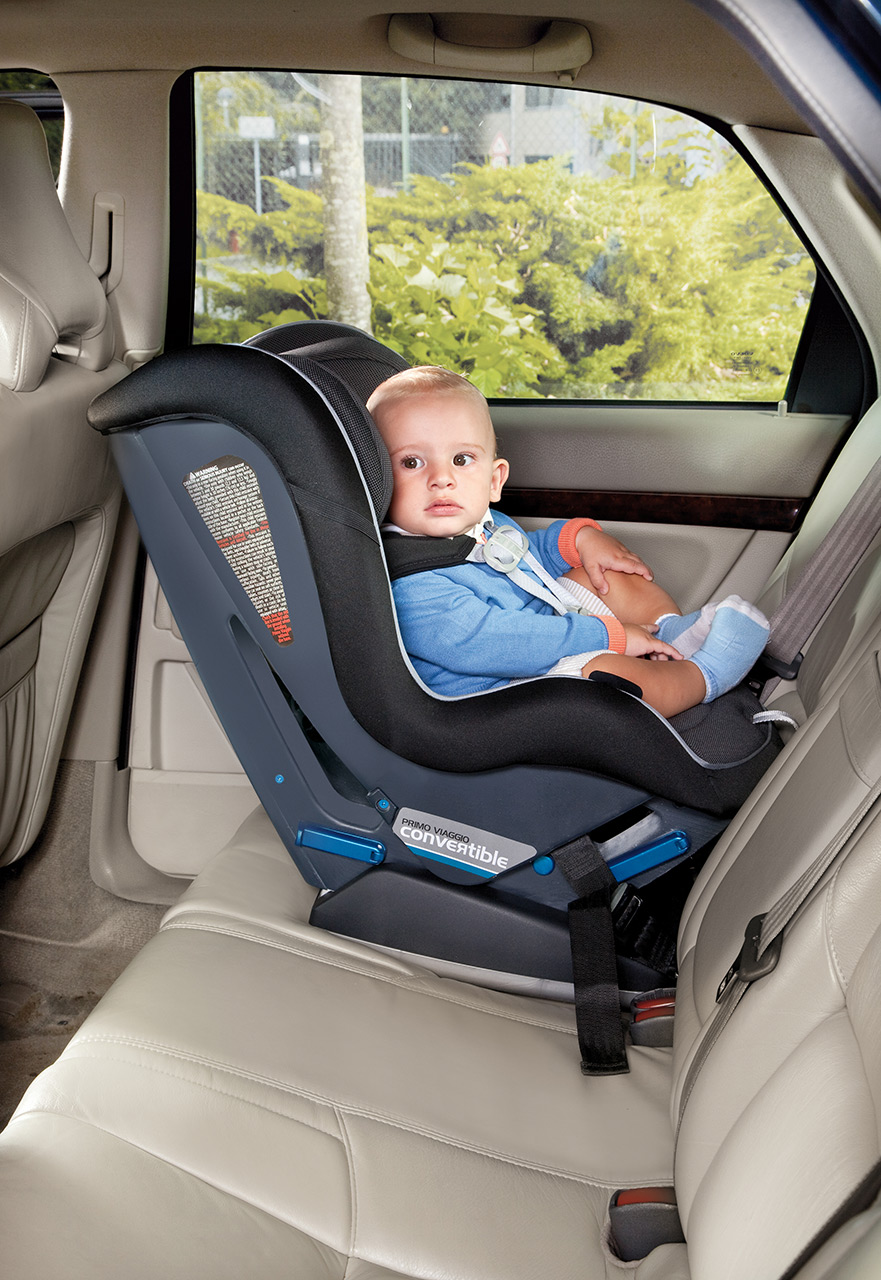 We’ve had infant car seats longer than many of you can remember – except grandparents, they can. They were at first tied down in the passengers seat; but, then air-bags made that dangerous and they were relegated to the back seat. The most intuitive direction was facing forward but fairly recently data has shown a much greater chance of surviving crashes if it is facing rearward.
We’ve had infant car seats longer than many of you can remember – except grandparents, they can. They were at first tied down in the passengers seat; but, then air-bags made that dangerous and they were relegated to the back seat. The most intuitive direction was facing forward but fairly recently data has shown a much greater chance of surviving crashes if it is facing rearward.
Dr. Soong’s study revealed that a sizeable number (24.5%) thought that a 22-pound nine-month old should be facing forward. And don’t snub your nose at grandparents because even a short drive around town will show you that a whole lot of “younger generation” parents still think the same way even though safety data shows children under two are up to 5 times safer facing rearward.
The AAPs recommendation is that all children under two should have their car seat facing opposite the direction of travel.
Sleep Safety
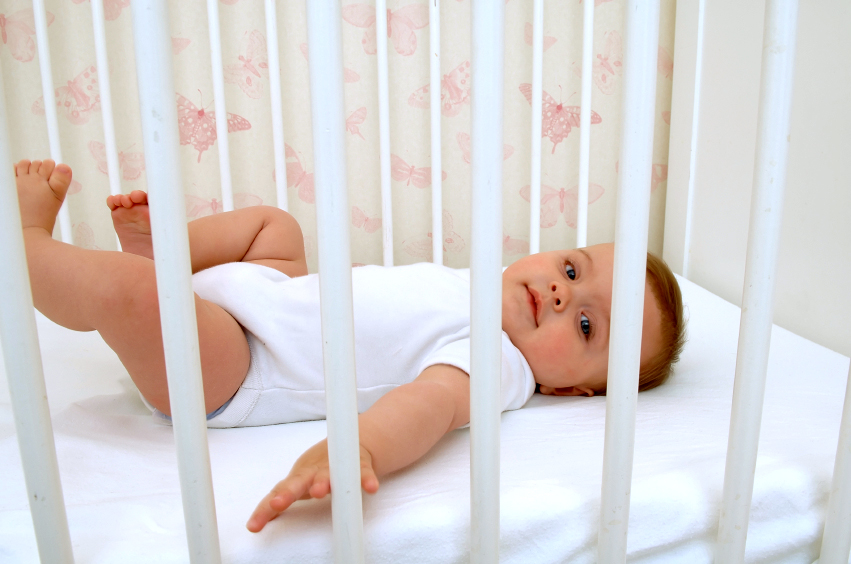 In Dr. Soong’s groups 49% of respondents believed that it was safe for infant beds to contain bumpers, stuffed animals and blankets in addition to mattresses and sheets. Only 26.5% believed the crib should contain just a mattress with a sheet.
In Dr. Soong’s groups 49% of respondents believed that it was safe for infant beds to contain bumpers, stuffed animals and blankets in addition to mattresses and sheets. Only 26.5% believed the crib should contain just a mattress with a sheet.
That was the largest discrepancy between current advice and current practice. The AAP advises against bumpers, stuffed animals, and blankets for safety reasons revealed by accident data.
Infant Walkers
Whenever I write an article for the web, I always search it to find posts that have already been written on the subject. Most of what I find are “Modern Mommy” type blog posts about how they have solved some problem or are coping with some issue. These are “real world” examples that I find very interesting.
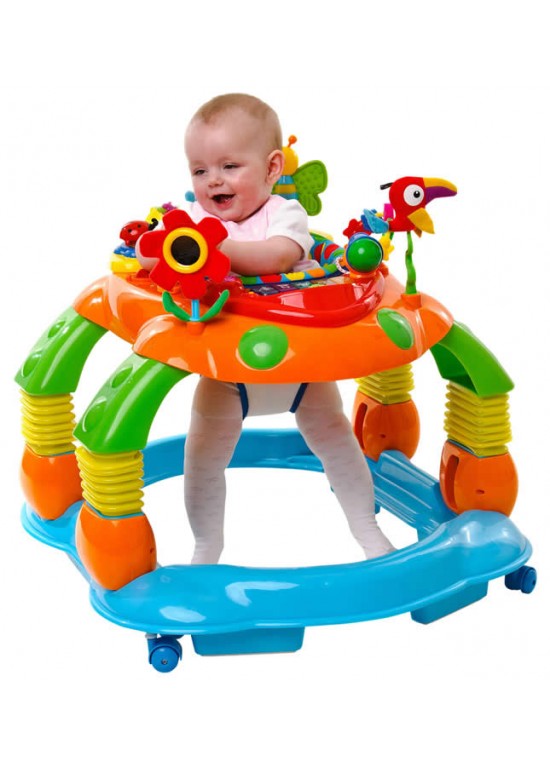 This time however, I stumbled across a blog where one such mommy (I’m going to assume without a “grandparent” close) disappointed me greatly. Pretty much as if she was proud of it she touted that: “Yes, she and her husband had attended the classes and had heard the lectures about how infant walkers weren’t recommended any more as safe. She had even cancelled it from her ‘wish list’ registry.”
This time however, I stumbled across a blog where one such mommy (I’m going to assume without a “grandparent” close) disappointed me greatly. Pretty much as if she was proud of it she touted that: “Yes, she and her husband had attended the classes and had heard the lectures about how infant walkers weren’t recommended any more as safe. She had even cancelled it from her ‘wish list’ registry.”
But then she claimed that she felt so sorry for her daughter “wanting to get around but couldn’t” that she “broke down” and bought one herself; and even posted a photo – just as if it was really her one-year-old daughter who had made the choice and was now better off for it.
If I had been the grandparent I might have said something like: “Let’s compare how you feel about this exaggerated scenario. Little one is now just learning to toddle around and is playing in the front yard which is ringed by a fence with a gate. Research data has clearly shown that until a baby is old enough to speak and understand and obey it’s best to have a gate on the fence. But, she just seems so unhappy standing at the gate. You can tell she longs to leave the yard and explore the neighborhood.”
“Do you remove the gate? Of course not! Why? Because you’re the parent.” – And, you certainly don’t write a blog post about it.
In this case the mommy in the blog and her daughter seemed to have dodged the bullet this time. I wonder if they would be so lucky if “they” decided to not get baby shots, or buy a trampoline. I think you can tell this bothers me a bit. We all try so hard to reduce risk for all children that it’s difficult to see deliberate risk taking.
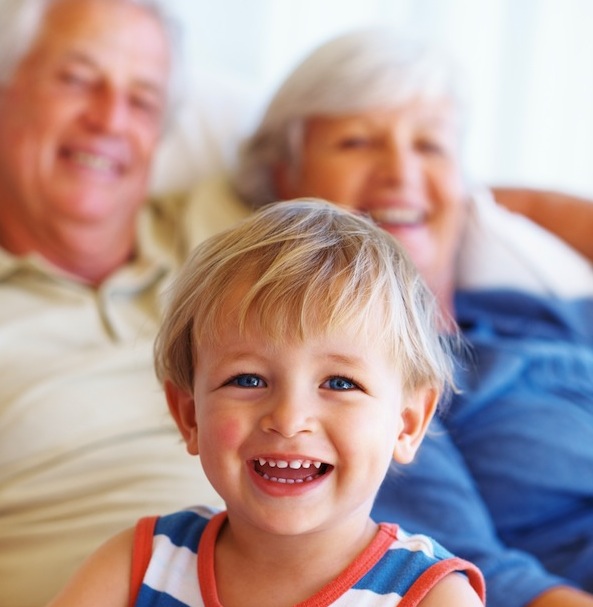 In Dr. Soong’s survey 73.9% of respondents believed that a walker is a good device to help babies learn to walk – obviously we really haven’t gotten the word out about this one.
In Dr. Soong’s survey 73.9% of respondents believed that a walker is a good device to help babies learn to walk – obviously we really haven’t gotten the word out about this one.
The AAP advises against using baby walkers at any age because of serious [a lot more than trivial] safety concerns, not just a whim.
So What Do We Do?
I hope by now that you can tell using grandparents as babysitters and caregivers is of great benefit in more ways than one. What Dr. Soong’s presentation tells me is that, especially in child care findings, “Don’t forget Grandma and Grandpa.”

